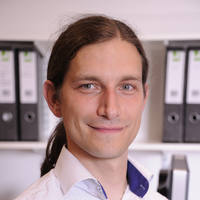Single Cell Genomics Core Facility
Scientific Operations
Archive Page
This page is maintained as a historical record and is no longer being updated.
In our core facility, we employ integrated microfluidic systems like the Fluidigm C1, acoustic dispensing, conventional flow sorting of single cells and liquid handling robots to deliver thousands of single cell genomes, transcriptomes and epigenomes per day, complemented by a fully automated sample handling, QC and library preparation pipeline.
In the beginning of every single cell experiment stands the challenge to dissociate tissues and isolate single cells into reaction containers. We support our scientists by gathering knowledge across teams on how to best isolate specific cell types from various tissues and by making this knowledge widely available. We employ microfluidic cell isolation procedures, e.g. by Fluidigm, and custom procedures that utilise microdroplet fluidics, very specific cell isolation using precision micromanipulation and laser capture microdissection, as well as high-throughput index sorting in our Cytometry Core Facility into 384w microwell plates.
After isolation, cell can be subjected to a range of protocols depending on the scientists requirements. For single cell RNAseq and whole genome amplification, we offer either the Fluidigm C1 platform as a user operated instrument or an automated high-throughput pipeline based on liquid dispensers. For more sophisticated protocols like >seq or scBisulphite Seq, we use conventional tip-based liquid handling systems that are integrated with a number of other components to offer a walkaway solution.
After amplification, all cell samples are subjected to a cleanup procedure and sample QC procedure that utilises tip-based liquid handlers and a novel type of acoustic dispenser. This particular instrument allows us to assess sample quality by transferring only 100 nl of a sample into specific assays. After quality control, libraries are set up on the same acoustic dispenser. Our current procedure uses up to 500 pg of cDNA/DNA to generate libraries in a volume of less than 1 µl. This unique technology helps us to significantly reduce cost while delivering a throughput of thousands of cells per day. This technology is not limited to library preparation, but can also be utilised for high-throughput qPCR and method development. All libraries are then quality controlled and submitted for sequencing by our in-house sequencing teams.
Core team

Matthew Mayho
Staff Scientist
